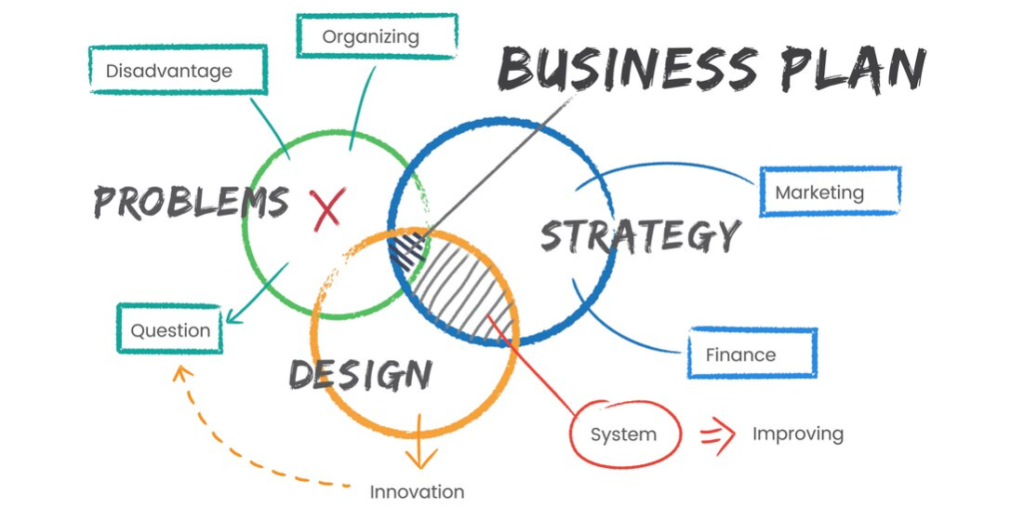A successful Startup Launch is exciting and challenging. This environment requires a strategy to traverse. This post covers ten essential startup launch recommendations to help your business succeed in today’s competitive industry.

Understanding the Market: Startup Foundation
Understanding the market is crucial to startup success. Consider these essential points:
Market Research: Study the industry, target audience, competitors, and solutions. This covers trends, customers, pain points, and market size analysis.
Determine Target Audience: Understand demographics, habits, interests, and obstacles to create your ideal customer profile (ICP). Customize your product or service for them.
Unique Value Proposition (UVP): Create a compelling UVP to differentiate your product. Explain how your product/service solves an issue or meets a need better than others.
Competitive Analysis: Assess direct and indirect rivals’ strengths, weaknesses, market positioning, pricing plans, and consumer feedback. Find market gaps your business can fill.
Validate Ideas: Survey, interview, prototype, or MVP potential consumers to validate your product or service idea. Get feedback and iterate.
Scalability: Assess your company model. Assess if your product/service can develop sustainably and adapt to market needs without sacrificing quality.
Validate Ideas: Understand and comply with industry rules, legal requirements, and any licenses or permissions your firm needs to operate legally.
Pricing Strategy: Set market-competitive prices that reflect your value. Consider manufacturing costs, perceived value, and consumer willingness to pay.
Go-to-Market Strategy: Plan how to reach your target audience. This encompasses marketing, sales, collaborations, and distribution.
Customer Feedback Loop: Collect customer feedback after launch. Improve your product, customer service, and user experience using this input.
Thoroughly research markets
Understanding your target market is crucial when starting a firm. Detailed market research identifies client wants, market size, and competition. This information is essential to creating a successful startup company model, offers, and tactics.

Making a Strong Value Proposition
Creating a strong value proposition is the cornerstone of capturing your audience’s attention and distinguishing your business from competitors. It’s essentially a concise statement that communicates the unique benefit or solution your product or service provides to your customers. Crafting a compelling introduction for your value proposition involves several key steps:
Create a Compelling Value Proposition
What distinguishes your startup? A compelling value offer is crucial. It should highlight your product’s advantages. A strong value proposition connects with your target audience, boosting the startup launch effect.

Financial planning: Your business’s foundation
Financial planning underpins any successful firm. It entails planning your company’s finances, allocating resources, and meeting short- and long-term financial goals. Here are the financial planning essentials for a solid business foundation:
Fund Adequately
Successful business launches require financial stability. Obtain sufficient funds from investors, loans, or savings. This funding helps begin operations and covers unexpected costs.

Strengthening Brand Identity
Establishing a distinct and memorable market presence requires brand identity strengthening. It requires creating a different and unified brand image that connects with your target audience and conveys its values, mission, and products. Consistency across aspects strengthens brand identity. This includes your brand’s image, messaging, and experience.
Build Brand Identity
You represent your startup with your brand. A strong brand identity, including a recognizable name, logo, and design, builds audience trust. Startups need this to develop a strong market position early on.

Working Marketing Strategies
Marketing strategies are essential to promote products or services, reach target audiences, and drive business growth. Here are several effective marketing strategies:
Plan your Marketing Strategy
Marketing is crucial to startup success. Marketing should use digital and traditional media. Use social media, content marketing, and SEO to expand your audience. Storytelling and personalization are key to good marketing.

Leveraging Technology for Efficiency
Technology is essential for improving corporate efficiency and production. Key tech techniques for efficiency:
Adopt Tech
In the digital era, technology changes everything. Use modern project management and CRM technologies to streamline processes. This improves productivity and simplifies operations.

Forming the Right Team
Business success depends on building the appropriate team. Here are crucial measures to building a successful team:
Gather Talented Team
Your crew is your greatest asset. Hire people that share your vision and have various abilities. A dedicated, talented staff is essential for startup launch, innovation, and growth.

Customer Focus: Success Key
Customer attention is crucial to corporate success. Why it’s important and how it helps success:
Set Customer Feedback Priority
Listening to consumers is key. Regularly get input and adjust. This customer-centric strategy improves your services and client happiness, helping your firm launch succeed.

Network, Collaborate
Networking and collaboration are powerful tools for personal and professional growth, fostering innovation, and expanding opportunities. Here are ways to effectively network and collaborate:
Cooperate and Network
Building business ties is crucial. Meet industry colleagues, attend events and form relationships. These relationships may help your business launch with insights, resources, and opportunities.

Agile and Adaptable
Being agile and adaptable in today’s dynamic business environment is crucial for staying competitive and thriving amidst constant change. Here’s how these qualities contribute to success:
Prepare to Pivot
The startup journey is uncertain. Be flexible and ready to change strategies. For your business launch to succeed, you must be adaptable to market changes, consumer requirements, and new possibilities.

Conclusion: Confident Launch
Launching a company is risky. Following these basic steps can help you build a company successfully. Understanding your market, providing value, strategic planning, and adaptability are key. These tactics will help your startup succeed.
Frequently Asked Questions (Faqs)
Startup success requires what?
A startup needs a good product, a well-researched go-to-market plan, and a strong corporate culture to flourish. These components might be difficult, but ensuring they function together is much harder.
Startup success: what matters most?
Bill Gross, entrepreneur, says company success depends on timing, people, concept, business strategy, and money. Funding is vital, but you should decide on other issues first.
What is the startup process?
Startups have three phases: intake, venture development, and licensing. Each project is different, and phases may overlap. Depending on the opportunity, the procedure might take 30 days to a year or longer.
How do startups grow?
Startups have three stages: early, venture-funded (growth), and late. The transition from early-stage to venture-funded (growth) is clear, while other phases are not. Knowing your continuum position helps you prepare for what’s ahead.
🚀 Boost Your Productivity!
Join our weekly newsletter for top time management tips and productivity strategies. Subscribe now for the latest insights and a special bonus guide: “10 Essential Tips for a Successful Startup Launch.





